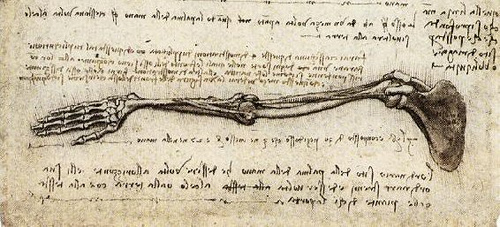There are 3 letters in the Italian word for 6, sei.
There are 4 letters in the Italian word for 8, otto.
There are 5 letters in the Italian word for 10, dieci.
There are 6 letters in the Italian word for 12, dodici.
There are 3 letters in the Italian word for 6, sei.
There are 4 letters in the Italian word for 8, otto.
There are 5 letters in the Italian word for 10, dieci.
There are 6 letters in the Italian word for 12, dodici.
If you don’t speak, you can’t misspeak, right? Not so: American Sign Language has the equivalent of tongue twisters, known as finger fumblers.
One example is “good blood, bad blood” — which is hard to say in speech or sign.
Famous people born on Friday the 13th:
The fear of this date is called paraskavedekatriaphobia.

Leonardo da Vinci recorded most of his personal notes in mirror writing. Maybe he wanted to hide his ideas from the Church … or maybe, being left-handed, he didn’t want to smudge the ink.
Gordon Macdonald was the last British governor of Newfoundland. Despite the island’s fiercely independent nature, he openly campaigned for it to become part of Canada. In 1949 he succeeded, and two days before he returned to England, the Evening Telegram published a congratulatory poem:
The prayers of countless thousands sent
Heavenwards to speed thy safe return,
Ennobled as thou art with duty well performed,
Bringing peace, security and joy
Among the peoples of this New Found Land.
So saddened and depressed until your presence
Taught us discern and help decide what’s best for
All on whom fortune had not smiled.
Remember if you will the kindness and the love
Devotion and the respect that we the people have for Thee
— Farewell!
It was several weeks before the editors noticed it was an acrostic — read the first letter of each line.
Words whose meanings contradict one another:
And TABLE means both “to present for consideration” and “to remove from consideration.”
This is a grammatically valid English sentence:
Buffalo buffalo Buffalo buffalo buffalo buffalo Buffalo buffalo.
It was discovered/invented in 1972 by University of Buffalo linguist William J. Rapaport. It means “Buffalo from the city of Buffalo that are intimidated by other buffalo from the city of Buffalo themselves intimidate a third group of buffalo, also from Buffalo.”
Is that clear? Be glad you’re not in the Netherlands, where Als In Bergen, bergen bergen bergen bergen bergen bergen bergen bergen bergen bergen means “If in Bergen, heaps of mountains salvage heaps of mountains, then heaps of mountains salvage heaps of mountains.”
hieromachy
a fight or quarrel between priests
A capitonym is a word that changes meaning when it’s capitalized:
A herb store owner, name of Herb,
Moved to a rainier Mount Rainier.
It would have been so nice in Nice,
And even tangier in Tangier.
An isogram is a word in which no letter is repeated:
Theoretically the limit is 26 letters, but that’s an Everest that no one has scaled. Dmitri Borgmann has conquered some lesser peaks with THUMBSCREW-JAPINGLY (18 letters, “as if mocking a thumbscrew”) and PUBVEXINGFJORD-SCHMALTZY (23 letters, “as if in the manner of the extreme sentimentalism generated in some individuals by the sight of a majestic fjord, which sentimentalism is annoying to the clientele of an English inn”). Maybe what we lack is imagination.